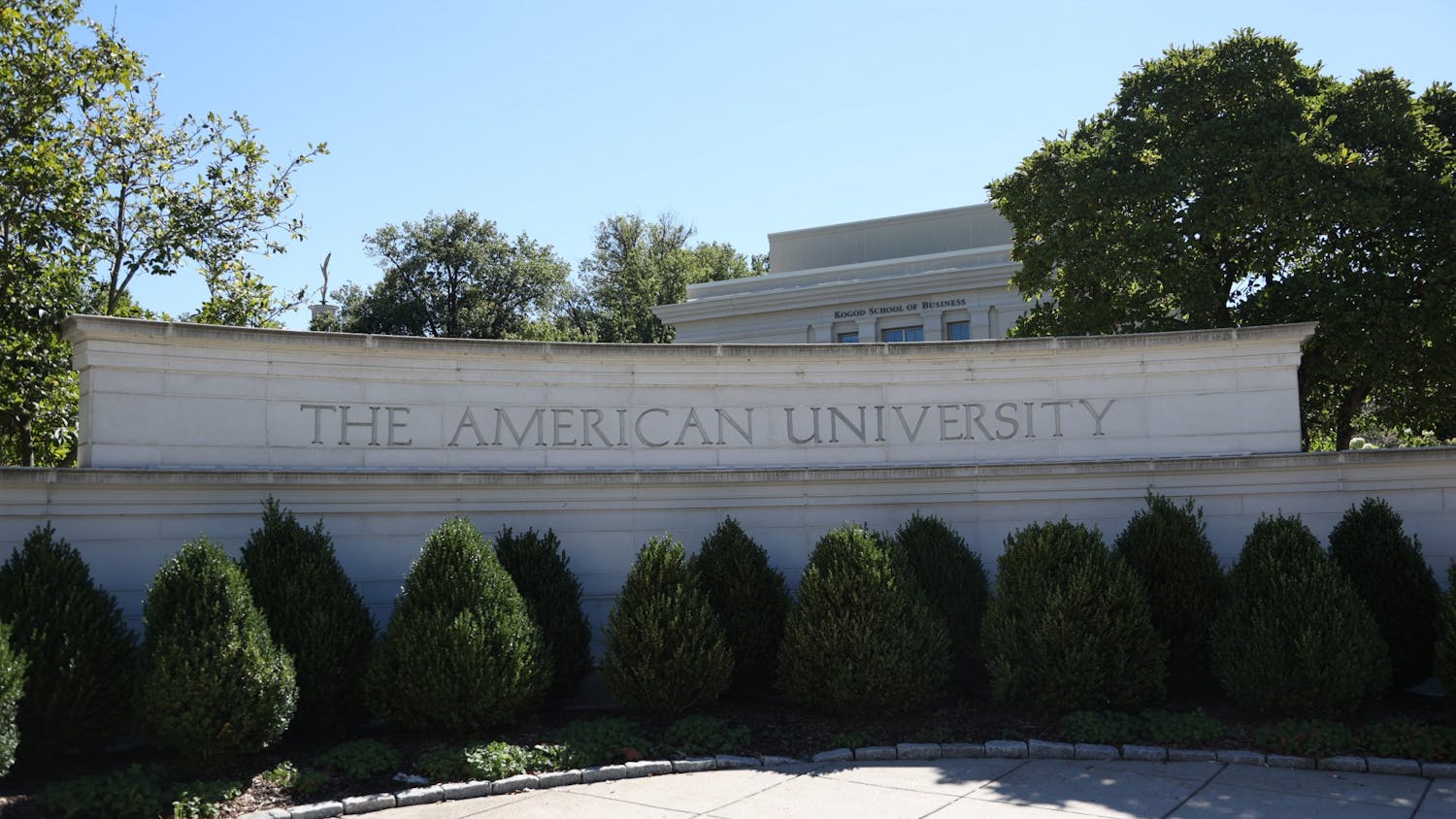About 100 students, faculty and community members gathered on Sept. 17 for the panel discussion “Ferguson: Race, Law, and U.S. Society” hosted by the School of Public Affairs’ Department of Justice, Law and Criminology.
Moderator Richard Bennett of the Department of Justice, Law and Criminology in the School of Public Affairs was joined by Thomas Zeitzoff of the Department of Justice, Law and Criminology; Steven Taylor of the Department of Government; Cathy Schneider of the School of International Service and Chana Barron of the Department of Justice, Law and Criminology.
Before Bennett turned to the audience for questions, each panelist spoke for a few minutes on issues pertaining to Ferguson.
Zeitzoff began by discussing the many ways in which St. Louis, Missouri is racially separated into small municipalities, some of which are physically separated by concrete obstructions called “Schoemehl pots.”
“These municipalities serve as a way, I would argue, for different communities within St. Louis to continue to basically serve the people that they want and not serve the other people that they don’t want,” Zeitzoff said. “And in St. Louis the traditional sort of political fault line is between blacks and whites.”
Taylor added to Zeitzoff’s points by explaining that the black population in St. Louis, especially in Ferguson, is not represented by its elected officials.
“Now why is this situation in existence? One is is that Ferguson has what is referred to as a ‘reform political structure.’ As a result, if those reforms are still in place in the municipalities or counties, they have the effect of restricting the political power of racial minorities,” Taylor said.
Elections for local officials are held in April, which leads to less people voting for municipal offices, Taylor said.
“Some people say that it’s a good thing so that the elections aren’t tainted by what is happening on the national, congressional level, but also [it] brings fewer people to the polls,” Taylor said. “When the elections are held in November more people come to the polls because there are more offices up for election.”
At the core of the discussion was the interconnectedness of race and police violence in lower class, minority neighborhoods throughout the United States, Schneider said. Many riots have been a result of of deadly force used between police and a minority group.
“What Ferguson has done is revealed this ongoing problem,” Schneider said. “The reason it has become such a flashpoint is because this is a case where the community has responded to an issue that would otherwise be invisible.”
Barron, who is also a lawyer, looked at the situation in Ferguson from a legal point of view.
“Because race is so ingrained in American culture it infects the legal process and legal decision-making implicitly, if not explicitly,” Barron said. “Much as we’d like to believe it, we do not live in a post-racial world.”
While at times the discussion strayed away from Ferguson, the panelists examined the complexity behind why Michael Brown was a target in the first place and what is happening in the city now.
Taylor suggested that police need to connect with the neighborhoods that they are supposed to protect rather than instilling fear in their jurisdictions.
“The black community feels absolutely powerless, and the reason for that is because we are,” Taylor said.
news@theeagleonline.com




